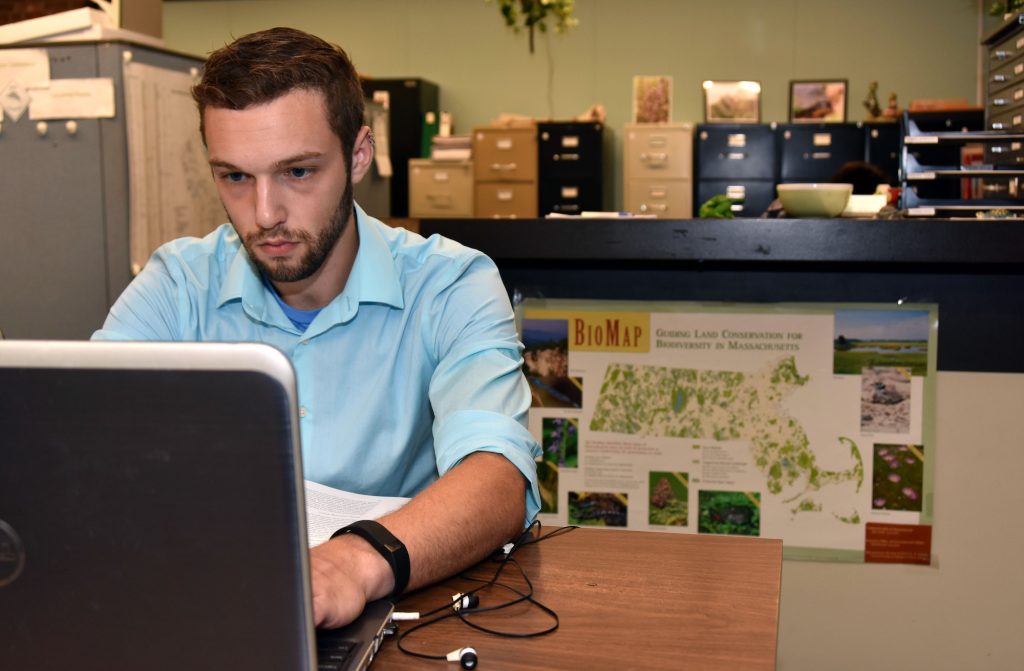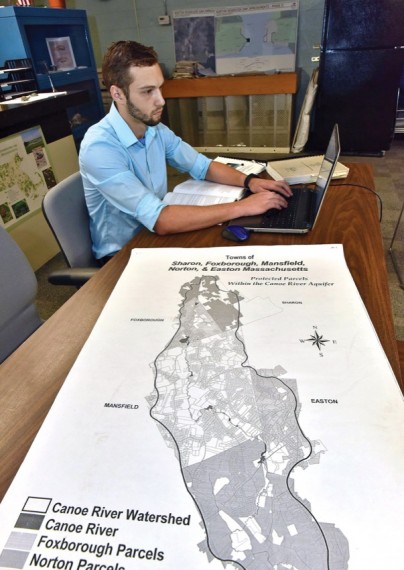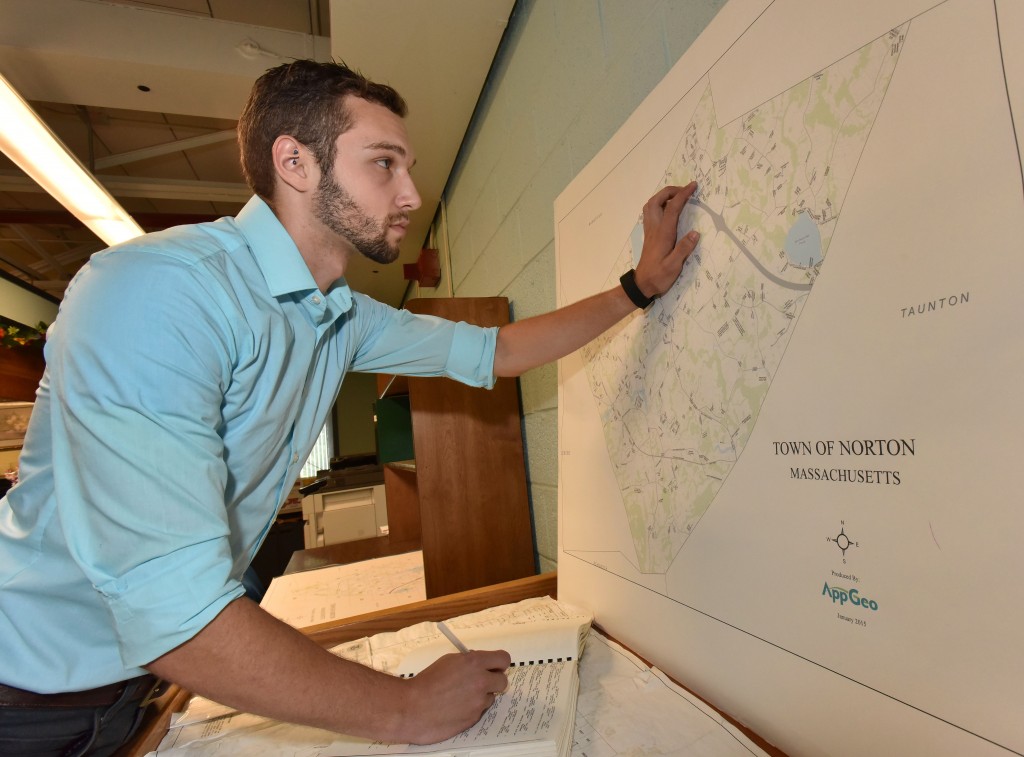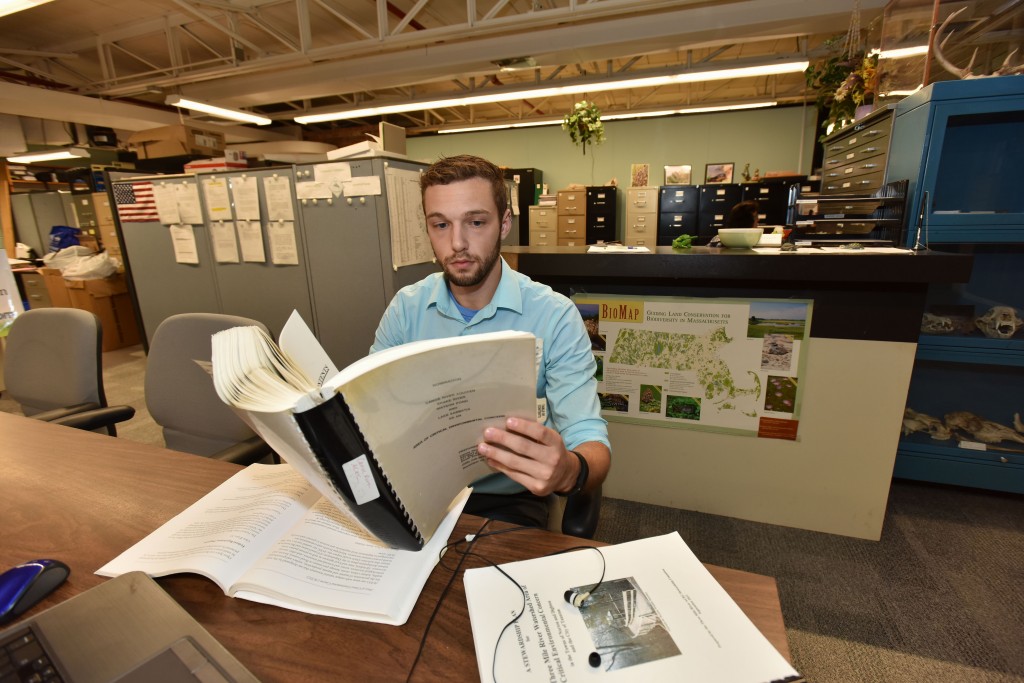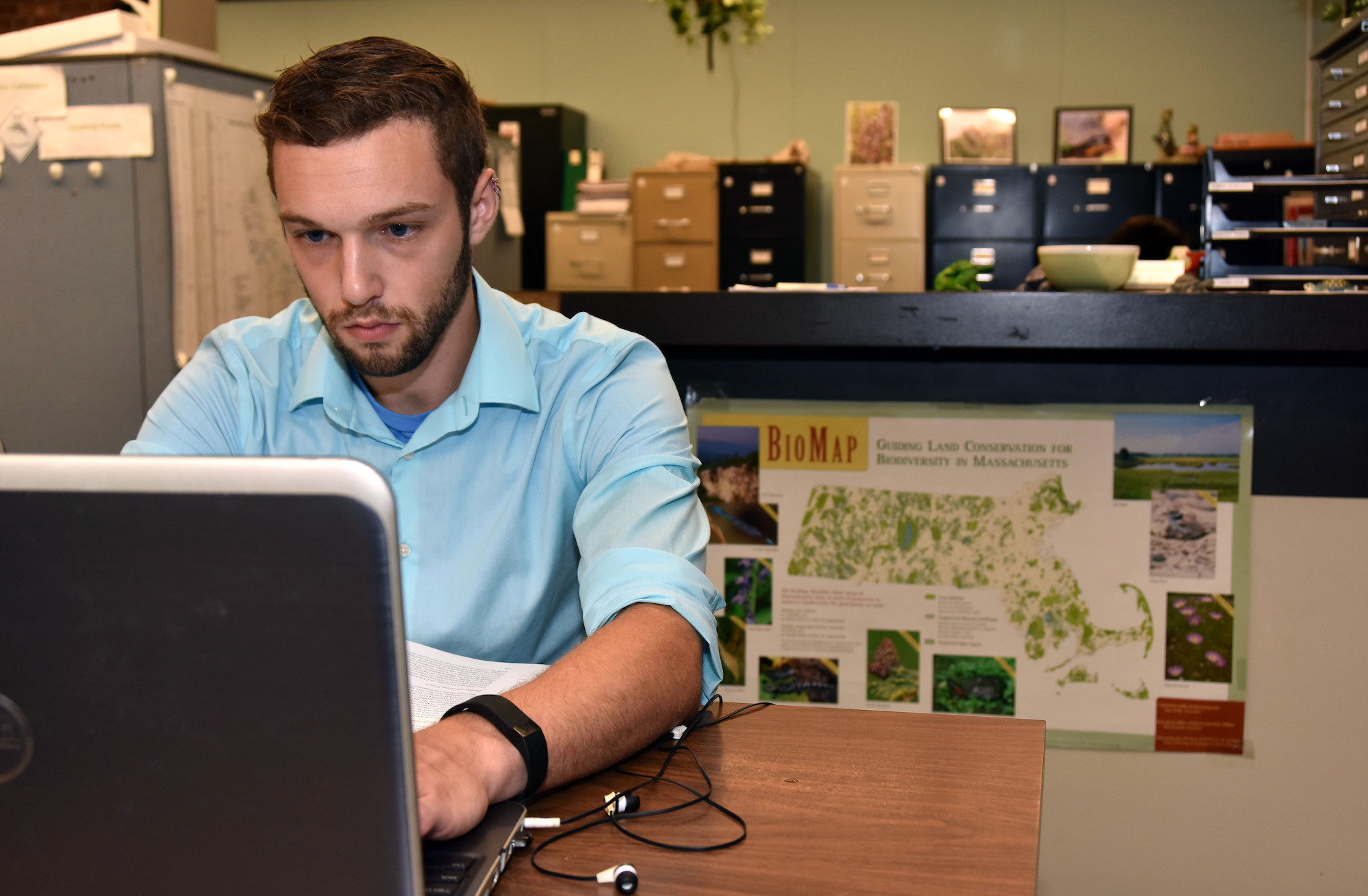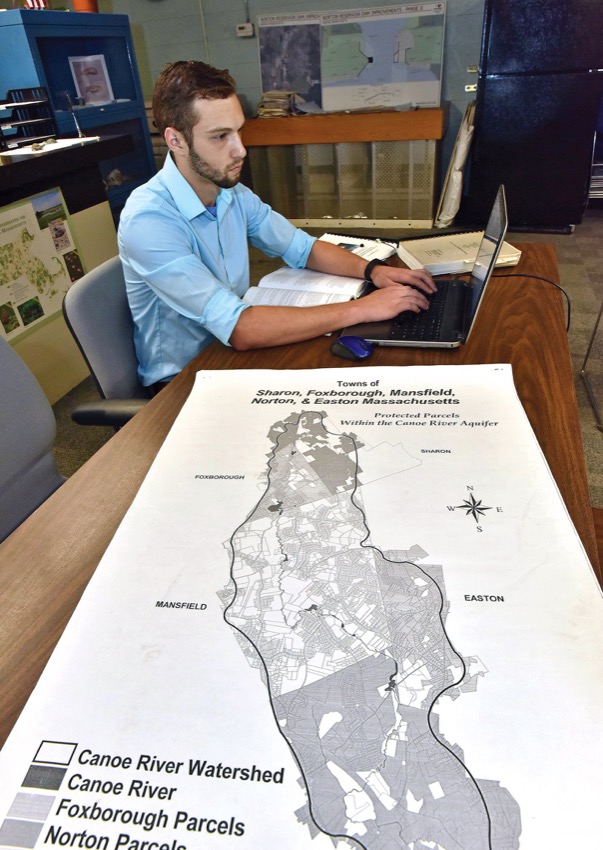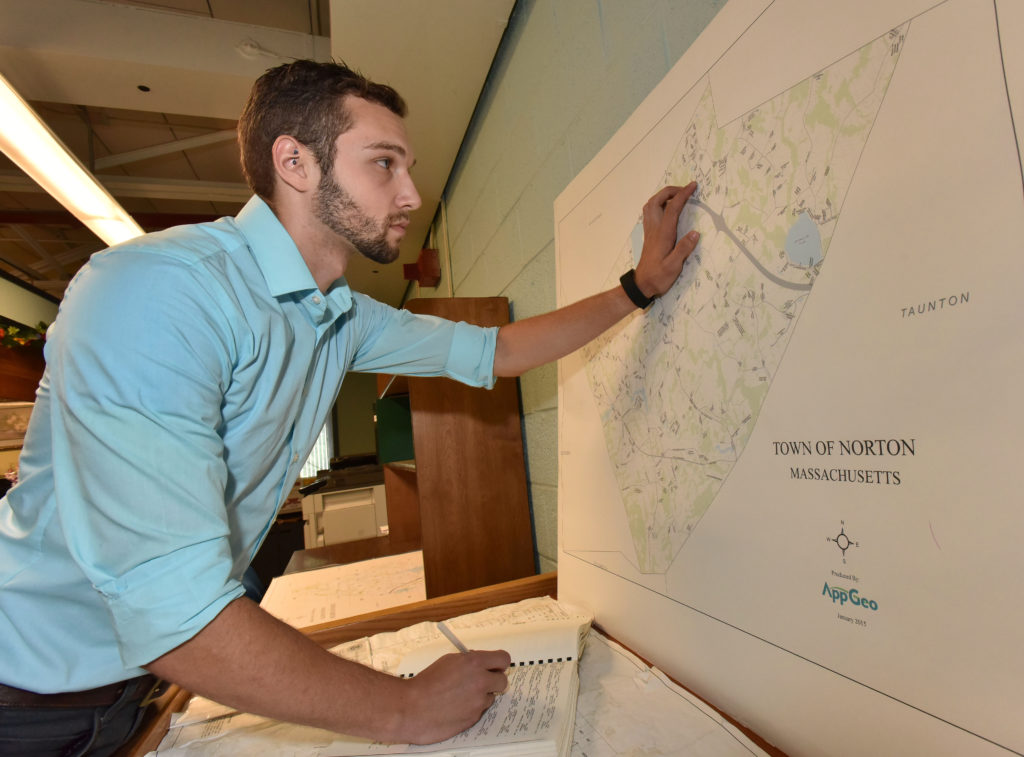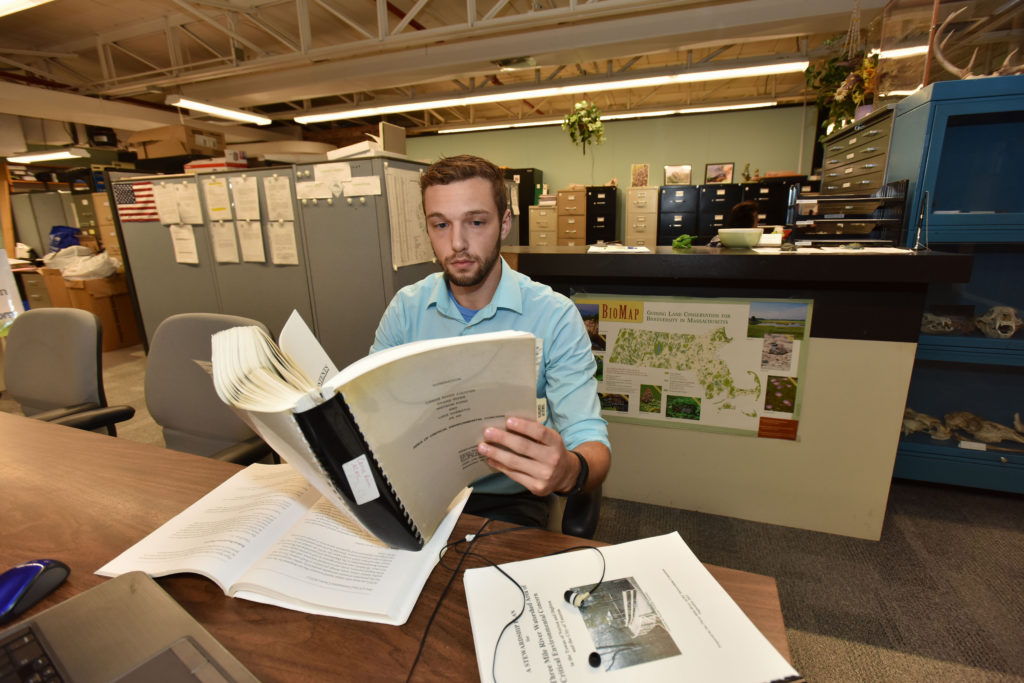Michael Schmidt ’17
Michael Schmidt ’17
Internship: Norton Conservation Committee
Majors: Biology and German
Award: Trustee Scholar
First draft: “For my internship at the Norton Conservation Committee, I worked on drafting a resource management plan for Canoe River Aquifer, a resource of environmentally critical concern that encompasses Norton, Easton, Mansfield, Foxboro and Sharon. It’s where we derive all of our water. If the water were contaminated, 50,000 people would be without a water drinking supply.”
Collaboration: “I worked under the Canoe River Aquifer Advisory Committee. My supervisor, Norton conservation agent Jennifer Carlino, is part of the committee. I attended its meetings, which included about 20 people, including biologists and land preservationists.”
A man and a plan: “I was the only one drafting the plan. My boss gave me the information to work with, and encouraged me to talk to the water department in each town to gather more data. It’s very large scale project. The biggest challenge was that the data available are out of date. The advisory committee formed in 1983, and they stopped collecting data before 2000. The resource management plan ultimately describes what data we have, what data we need, and recommendations on how to move forward.”
Town connections: “I found out about the position through word-of-mouth. I’m friends with a couple of Norton firemen with whom I play on a softball league. I told them I had an opportunity for an unpaid internship in ecological biology, and they talked to the conservation board. That is how I found out about the opportunity.”
In the field: “My favorite part about the internship was going into the field to explore the Canoe River; we’d been out there working to make a culvert more eco-friendly. It was awesome. It is one of the most pristine areas we have left, where you see nature as it should be. There are Damselflies and dragonflies, and lots of fish. Also, as an intern, I’ve learned about wetland permitting.”
First time’s the charm: “This is the first internship I’ve ever done. It’s awesome to know the work is meaningful, but it was daunting, as I didn’t want to mess anything up. Once the plan is finally drafted, it will go to the Department of Environmental Protection for state approval.”

